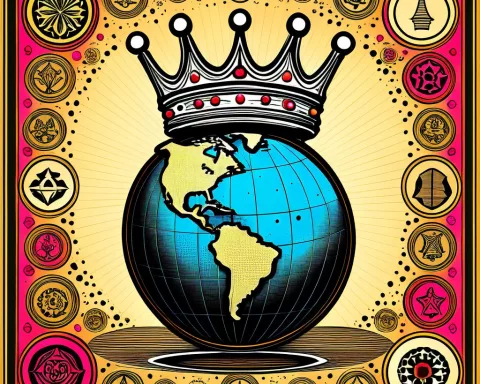Gasant Abarder’s journey takes us on an emotional ride, exploring what home and identity really mean. His travels show the stark differences between Turkey and South Africa, revealing how nationalism can create division and fear in one place, while fostering freedom and community in another. Despite the challenges he faced, Abarder feels a deep connection to Cape Town, where the beauty of Table Mountain reminds him of the joys of belonging. His story teaches us to appreciate our homes while being hopeful and critical about the world around us. Ultimately, it’s about finding pride in who we are and where we come from.
What insights does Gasant Abarder’s journey offer about home and identity?
Gasant Abarder’s journey highlights the profound interplay between home, identity, and belonging. Through reflections on nationalism in Turkey and civic engagement in South Africa, he emphasizes the significance of freedom, the complexities of societal attitudes, and the importance of a critical yet hopeful perspective on one’s homeland.
Returning Home: An Emotional and Intellectual Journey
Gasant Abarder’s reflections on returning to South Africa from his travels abroad provide profound insights into the themes of identity, belonging, and civic responsibility. For Abarder, the homecoming is not just a physical return but a deeply emotional and intellectual voyage. His experiences abroad, coupled with his observations in South Africa, unravel a complex narrative that goes beyond a simple comparison. This journey not only celebrates the blessings of being a Capetonian and South African but also encourages a broader understanding of the global socio-political landscape.
Abarder’s recent visit to Turkey offered him a striking contrast to the freedoms he often takes for granted in South Africa. His encounters in Turkey painted a picture of a society marked by a strong sense of nationalism, often manifesting as hostility toward people from different nationalities, particularly those with darker skin tones. This pervasive attitude, especially towards individuals from Indian, Pakistani, Syrian, Kurdish, and Arab backgrounds, highlights a troubling trend of xenophobia in certain regions. Abarder describes this bias as “equal opportunity,” driven by socio-economic challenges and fervent nationalism verging on aggression.
In Turkey, Abarder noticed a significant educational gap that contributes to the broader socio-economic difficulties faced by its people. Many graduates struggle to find jobs in their fields, and stagnant wages fail to keep up with rising costs. The devaluation of the Turkish Lira leads to inflated prices, exacerbating frustrations among the populace. Abarder points out that resentment is particularly evident when visitors like him—mistaken for people from South Asia—spend in a single transaction what amounts to an average monthly wage in Turkey.
Navigating Complex Attitudes and Institutional Challenges
Abarder observes a spectrum of attitudes in Turkey, suggesting that although the younger generation exhibits more tolerance, the overall societal atmosphere remains tinged with suspicion and resentment. He recounts instances where police officers indiscriminately demanded identification from those who “look different,” indicating an entrenched form of xenophobia within institutions. Despite these challenges, Abarder maintains a resilient outlook, choosing to interpret these encounters as reflections of the society he visited rather than personal affronts.
Turning his focus back to South Africa, Abarder expresses deep appreciation for the freedoms and liberties often overlooked by its citizens. He highlights a recent mass demonstration in Cape Town, where thousands gathered to protest against injustices in the Middle East. This act of civic engagement underscores a fundamental aspect of South African society: the ability to voice dissent and stand in solidarity without fear of governmental repression. Such freedoms are not universally available, even in countries celebrated for their democratic values.
South Africa’s political landscape, though rife with its own issues, acts as a moral compass on the international stage. Abarder cites a legal victory against Israel as a testament to South Africa’s dedication to justice, despite ongoing struggles with corruption, crime, and economic instability. This dedication reflects not the actions of its leaders but the enduring spirit of its people, who, through dialogue and community, navigate the complexities of a nation still in its formative years.
Nationalism and Identity: A Tale of Two Nations
Abarder’s juxtaposition of his international experiences with his reflections on South Africa invites a deeper contemplation of nationalism and identity. In Turkey, nationalism manifests as exclusionary practices, whereas in South Africa, it is characterized by a vibrant mix of voices striving to hold power accountable. This distinction serves as a crucial reminder that patriotism does not have to equate to xenophobia or intolerance.
His narrative is tinged with profound gratitude and hope. Upon his return to Cape Town, the sight of Table Mountain fills him with an overwhelming sense of belonging and joy. This moment encapsulates the essence of what it means to be South African—an acknowledgment of the country’s imperfections paired with an unwavering belief in the possibility of progress. South Africans engage in candid discussions about their nation’s direction, undeterred by the challenges of critiquing leadership while celebrating collective achievements.
Abarder’s reflections emphasize the importance of perspective in a world rife with division. Traveling can illuminate the unique strengths of one’s homeland and highlight areas in need of improvement. His experiences underscore the significance of maintaining a critical yet hopeful view of one’s identity and place in the world. Through his lens, being Capetonian and South African is not merely a geographical designation but a profound privilege imbued with responsibility and potential.
Frequently Asked Questions (FAQ)
What themes are explored in Gasant Abarder’s journey regarding home and identity?
Gasant Abarder’s journey delves into the intricate relationship between home, identity, and belonging. He contrasts the nationalism experienced in Turkey with the civic engagement found in South Africa, emphasizing the importance of freedom, societal complexities, and the need for a hopeful yet critical perspective on one’s homeland.
How does Abarder’s experience in Turkey contrast with his feelings about South Africa?
Abarder’s experiences in Turkey highlight a stark sense of nationalism that often manifests as xenophobia, creating division and fear. In contrast, his reflections on South Africa reveal a society that, despite its challenges, fosters community, engagement, and a spirit of resilience, allowing for a celebration of identity and belonging.
What does Abarder mean by civic responsibility in the context of returning home?
For Abarder, returning to South Africa is not just a physical journey but an emotional and intellectual one that encourages a sense of civic responsibility. He underscores the importance of being engaged citizens who actively participate in discussions about societal issues and hold power accountable, reflecting the freedoms enjoyed in South Africa.
How does nationalism manifest differently in Turkey and South Africa according to Abarder?
In Turkey, nationalism often leads to exclusionary and hostile attitudes towards those of different backgrounds, particularly visible minorities. In contrast, South Africa’s nationalism is characterized by a vibrant public discourse, where diverse voices strive for accountability and justice, illustrating that patriotism can coexist with tolerance and inclusivity.
What insights does Abarder provide about the socio-economic conditions in Turkey?
Abarder highlights significant socio-economic challenges in Turkey, such as an educational gap, high unemployment rates among graduates, and the devaluation of the Turkish Lira, which exacerbates public frustration. He notes that these issues contribute to a climate of resentment and xenophobia, affecting interactions between locals and foreigners.
What message does Abarder convey about the importance of perspective in understanding one’s identity?
Abarder emphasizes that traveling can enhance one’s appreciation for their homeland by illuminating its unique strengths and areas for improvement. He advocates for maintaining a critical yet hopeful outlook on identity and belonging, suggesting that being Capetonian and South African is both a privilege and a responsibility to foster progress and community engagement.












